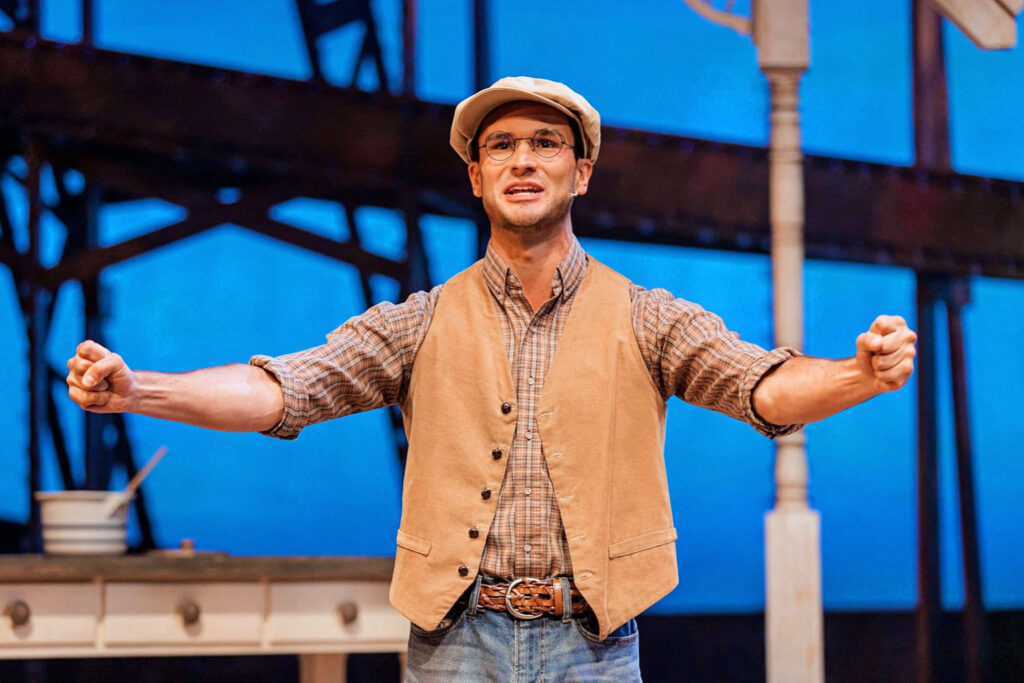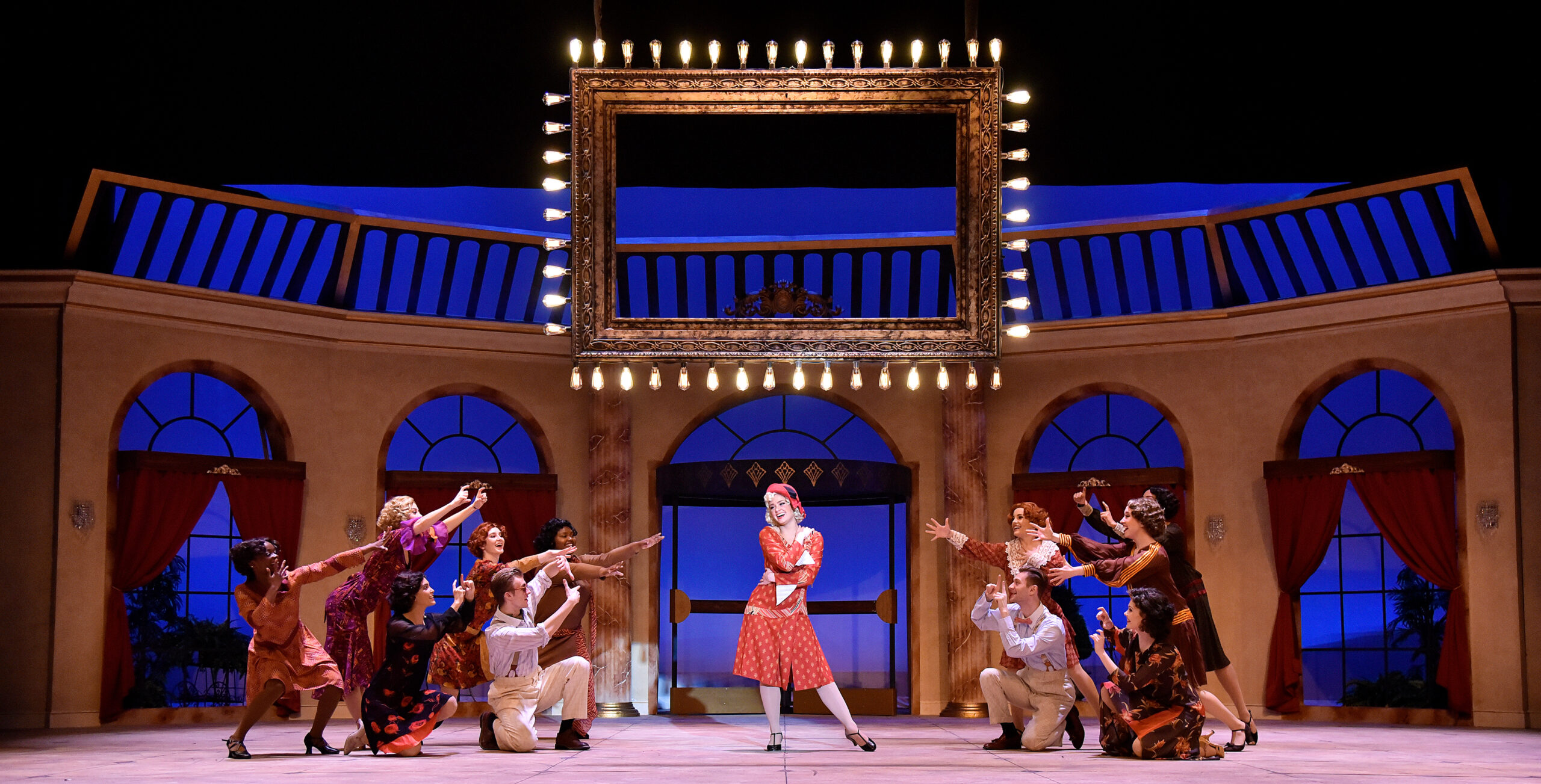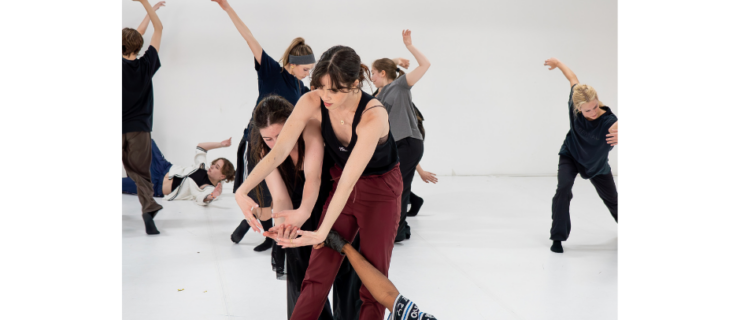Training Triple Threats: What Dancers Need to Know About Studying Musical Theater in College
When Maria Briggs was accepted into both the dance and musical theater programs at the American Musical and Dramatic Academy (AMDA) in New York City, she ended up choosing musical theater. “I was already a strong dancer,” she says. “I needed to work on my singing and acting, if I was going to have a career in theater.” Now, with six Broadway shows under her belt (most recently The Music Man), Briggs advises students on the cusp of college to think about the skills they’ll need to achieve their professional goals. There are a wide array of musical theater majors, minors and courses of study, and no two programs are alike. Whether you’re already a triple threat or you’re a dancer wanting to branch out, finding a college program that will help you meet your goals is a matter of asking all the right questions.
How Rigorous Is the Dance Training?
At Marymount Manhattan College in New York City, students pursuing a BFA in musical theater take dance five mornings a week. At the Chicago College of Performing Arts, musical theater BFA candidates can do a concentration in dance, which program director Tammy Mader says is “nearly a dance major, up to 12 dance classes a week.” But even in these dance-heavy departments, dance won’t be the only focus. Studying musical theater also means taking voice lessons, acting workshops, music theory and more.
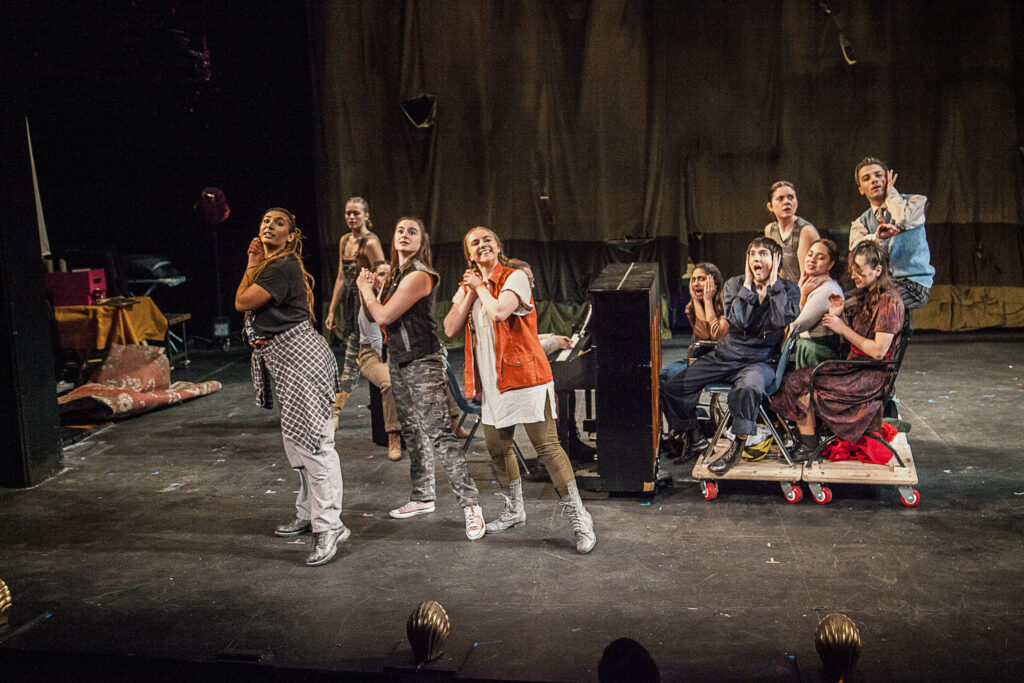
When researching programs, look into not only how much dance is involved, but also whether dancers, actors and singers are placed in classes based on skill. Consider the prospect of studying in dance classes alongside peers who have far less dance experience. It’s not always a drawback: Briggs says she benefited from being in dance classes with singers and actors. “It taught me about being a team player,” she says. “In an ensemble, you’ll have members with different levels and skills.” Also, remember that theater dance is about more than technique. You must learn to move in a way that tells a story.
For more of a challenge, think about a double major, or a major in musical theater and a minor in dance (or vice versa). Ask about enrolling in an advanced class with the dance majors or taking open classes off-campus. At some schools, you may even be able to perform in dance concerts as well as musical theater productions.
The opportunity to shape his own course of study attracted Tommy Gedrich to Muhlenberg College in Allentown, Pennsylvania. At Muhlenberg, Gedrich double-majored in theater (with an acting concentration) and dance (with concentrations in performance and choreography); Gedrich later added courses in women’s and gender studies. “I did look at going the conservatory route,” they say, “but in the end, I wanted to focus on each discipline without having to sacrifice one or the other.”
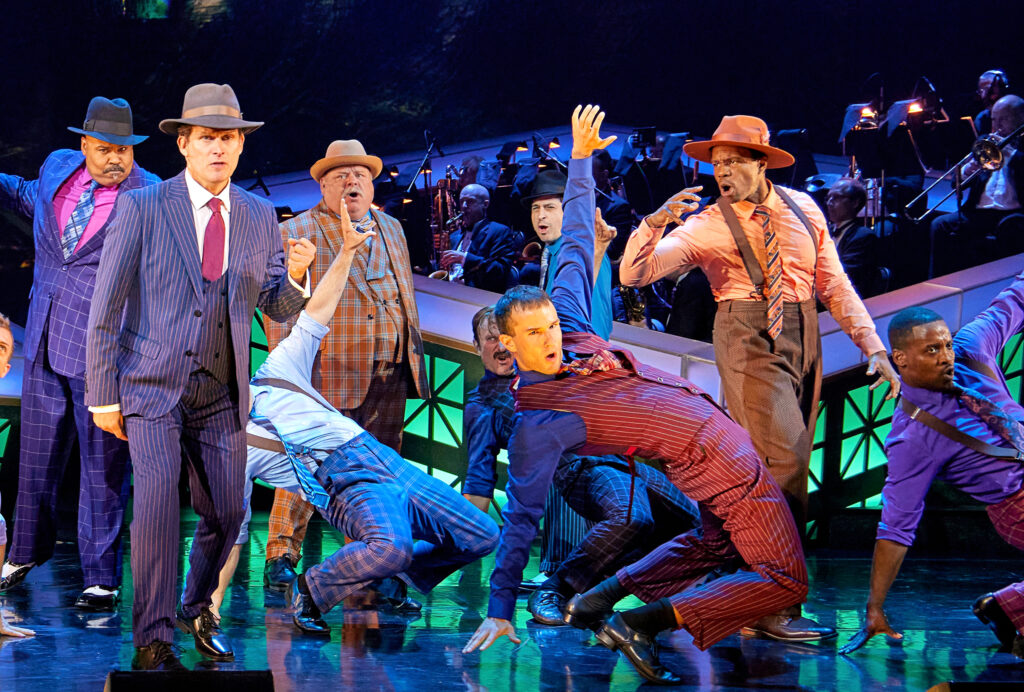
How Much Singing and Acting Experience Is Required?
“If you want to get into a top musical theater program, you have to be able to sing,” says Lyn Cramer, a professor of dance at the University of Oklahoma’s Weitzenhoffer School of Musical Theatre. This doesn’t mean you must already be highly trained, however. “Can you carry a tune? Do you have a nice quality?” Cramer asks. “There has to be potential.”
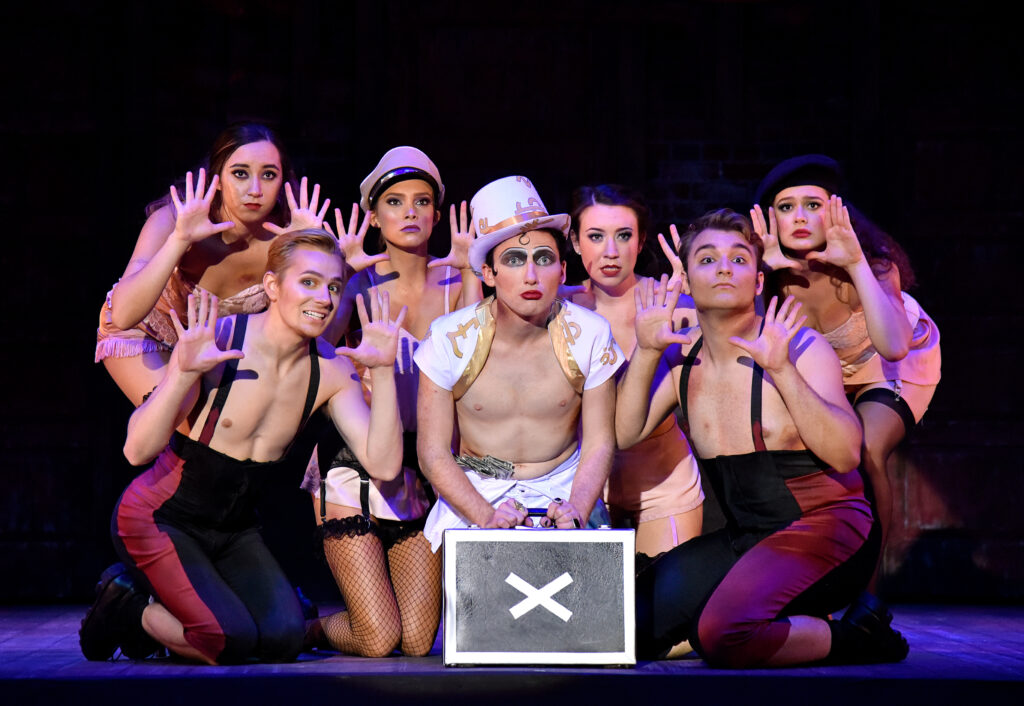
OU’s BFA in Musical Theatre Performance program is small by design, with only 50 majors at a time. Other programs are much larger—but that doesn’t necessarily mean they’re less selective. Mader recommends booking a few sessions with a vocal coach before the audition. “They can help you pick songs, set the tempo, cut and mark your material—all things that will make your audition go more smoothly,” she says. Plus, “dancers are notoriously terrible at breathing. Getting some exercises and experience with that is vital.”
As for acting, again, the audition requires applicants to demonstrate potential. “When someone comes to us, they might not be the strongest storyteller…yet,” says Emily Clark, an assistant professor at MMC. “But if we ask why they made a choice, can they explain it? If we ask them to make an adjustment, can they take the note? It matters that a student is willing to learn and grow.”
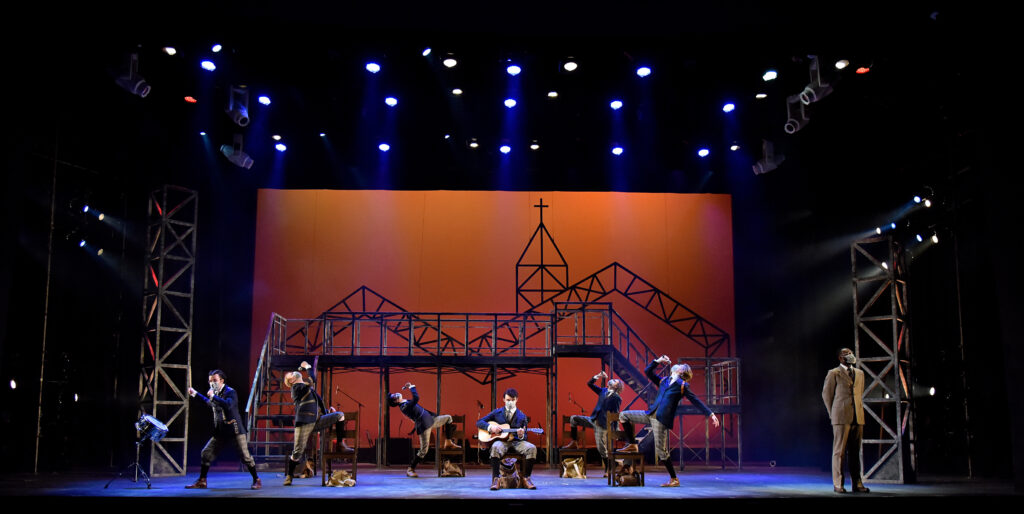
Are Graduates Working in the Field?
“I believe that musical theater majors work more quickly and climb the ladder faster” than dance majors, Cramer says. “At graduation, our students are ready to get out there and hustle. It’s not all Broadway, or even regional theater, but they work.”
One reason for the jumpstart? “A musical theater degree makes you versatile,” says Mader. “You can dance in the chorus or get supporting or even leading roles. You can do print work, modeling, film and TV, voiceover, choreography and, of course, teaching. You can speak with poise in interviews. Theater makes you a better performer and a better communicator.”
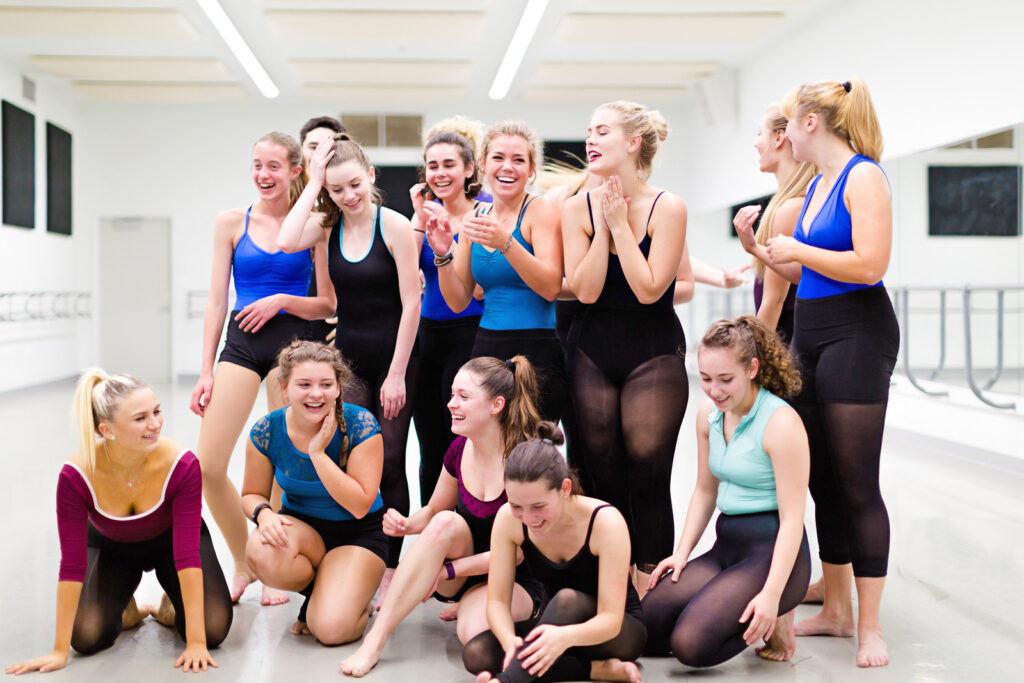
Briggs is an example of someone who hit the ground running. While finishing the academic portion of her BFA at The New School (the AMDA NYC musical theater program where she started is a two-year certificate), Briggs did regional theater and danced in Radio City’s Christmas Spectacular, before making her Broadway debut in CATS. Gedrich, currently on the national tour of Moulin Rouge!, has also been working since graduating from Muhlenberg in 2021. Other recent credits include performing in The REV Theatre Company’s production of Rodgers & Hammerstein’s State Fair, in The Kennedy Center’s production of Guys and Dolls, and for NBC at Radio City Music Hall. They also walked in New York Fashion Week in a show that cast dancers.
In some cases, students land their first gigs as undergrads. Although MMC students must receive permission to audition and then discuss their educational paths with faculty, Clark notes one student who went on tour with Mean Girls after their sophomore year, and another who is completing his degree while on tour with The Book of Mormon. “We encourage students to audition while they’re with us,” Clark says. “We want to support them in school and as they become professionals.”
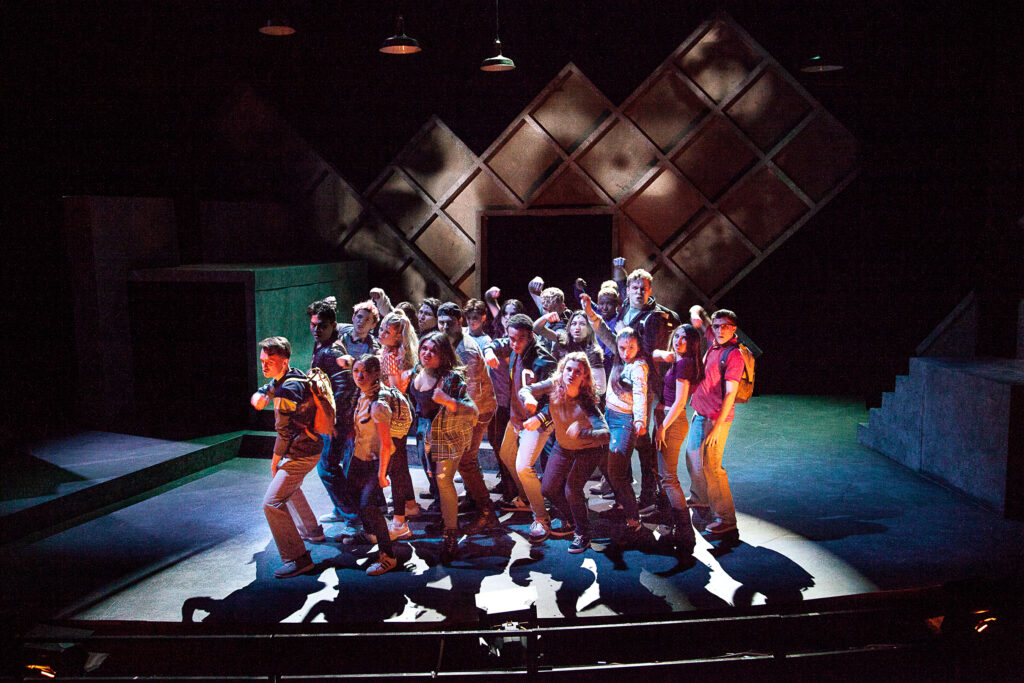
What Else Do You Want From College?
Do you want to be in a bustling city or in a more traditional college environment? Do you want to pursue an academic major in addition to musical theater? Do you play sports or participate in other extracurriculars? As you look at degree programs and their dance offerings, don’t forget to factor in other aspects of college life that will affect your time on campus.
And don’t fret if you don’t get into the most prestigious program—or if you visit your dream school and it feels like a poor fit. “In high school, I thought the only way to pursue musical theater was to actually get a degree that says ‘musical theater’ on it, and that’s really not the case,” Gedrich says. “In auditions, they’re not looking at your diploma. They’re looking at your skills.” Choose a program that will enhance your talents and broaden your horizons, and you’ll be on your way.
